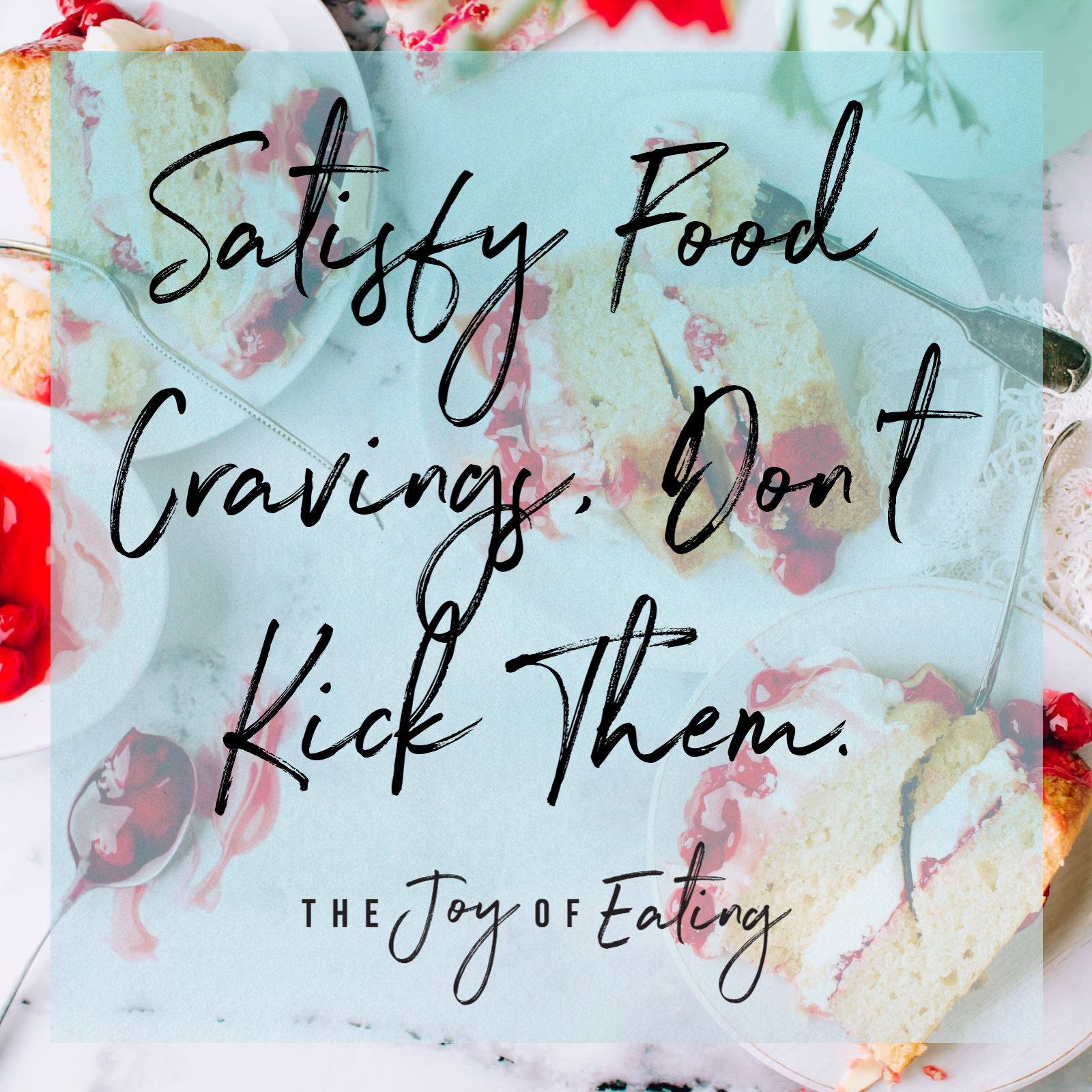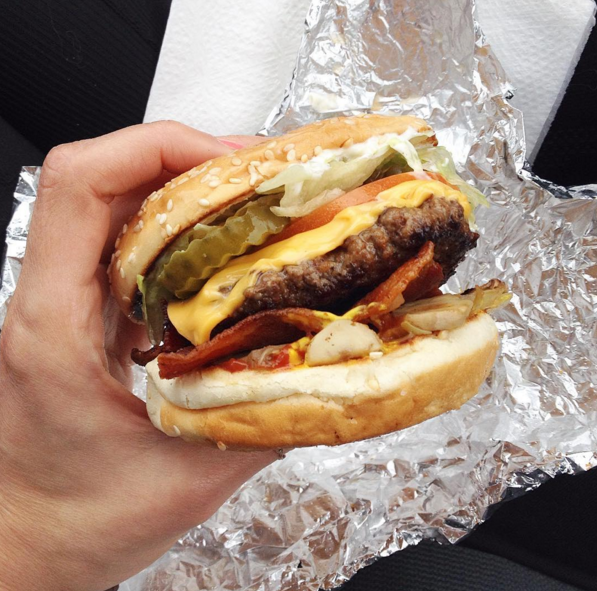Satisfy Food Cravings, Don't Kick Them
How much time and energy have you spent trying to not give in to a food craving?
If you feel like you could have accomplished something substantial in that amount of time, like learning to play a musical instrument or watching all the TV shows saved in your Netflix queue, I don't think you're alone. Judging by the 46 million plus results I got after googling "how to stop food cravings,” it’s clearly something a lot of people have thought about.
And who wouldn't want to "Crush Your Food Cravings" or "Get Rid of Junk Food Cravings For Good?" Especially when we live in a world that talks about eating a too much ice cream like you stole from an orphan or something. There’s so much fearmongering about eating sweets or fast food or things that aren’t deemed “clean,” of course the first reaction to a food craving might be fear.
That said, I can pretty much guarantee that every single one of those 46 million results is filled with bad advice, because it’s pretty hard to outrun a craving. More than likely, you will eat close to 46 million different things, and then end up eating the food you were craving in the first place.
Eating ice cream in bed doesn’t have to be a guilt-filled experience…sometimes it really does make you feel better!
The thing is, your body truly knows what's best and will tell you what it needs. As you learn to filter out the noise of diet culture and tune in to what your body is telling you, you’ll feel more confident responding to those cues. That's the basic premise of intuitive eating.
If the idea of trusting your body feels scary, there's actually lots of good evidence that shows it will guide you to overall healthy choices with food. Of course, that does not mean you will crave only green smoothies and salads. Research shows intuitive eaters eat a wider variety of foods, and more nutrient-dense foods. One of my favorite studies support this idea is one that was done in the 1930s by a pediatrician named Clara Davis. She took 15 orphans, most of which were suffering from the deleterious effects of…well, being an orphan in the 1930s. She provided them with unlimited quantities of 34 foods and allowed the toddlers to decide what and how much they ate without outside guidance. She found the children instinctively chose the foods that were best for their individual needs, for example, eating more protein during times of growth and, most interesting, a child who drank cod liver oil until he cured himself of rickets.
Your body knows what's best for you in the moment, and what’s best for you in the moment isn’t always carrot sticks and hummus. Sometimes a brownie really is the healthiest choice.
That said, sometimes it’s helpful to dig in and see if there is anything else behind the craving, especially if you’re experiencing an intense or uncomfortable emotion at the same time as your craving. Not because eating to cope with a negative emotion is bad or wrong, but there may be other tools that are useful in the moment. When you know you’re eating ice cream because you’re feeling sad, and (important part here) give yourself permission to eat ice cream because you’re feeling sad, eating ice cream might actually make you feel a little bit better. Or at least better than if you’re furiously eating ice cream over the sink while filled with guilt.
Or, perhaps you’re feeling hungry! That doesn’t mean that whatever you’re craving won’t satisfy your hunger, but if your craving involves a large bag of jelly beans, perhaps it would be smart to eat a substantial snack, then enjoy some jelly beans, as jelly beans are tasty but not exactly filling.
Wherever your craving is coming from, denying yourself isn’t the answer. Your craving is trying to tell you something, that you need nourishment, either in the form of food, or emotional nourishment. Food cravings don't need to be denied, they need to be investigated, then honored.
Think of listening to your cravings as one way of building trust with your body. It’s a two way relationship. When your body trusts that you’ll respond accordingly to it’s cues, it will respond by giving cues that are more reliable. This is super scary at first, especially if you’re been restricting certain foods for a long time. In this case, satisfying your food cravings will likely mean eating a lot more of the foods you’ve been restricting than you feel comfortable with. You’ll benefit from working with a dietitian who specializes in intuitive eating - I work with clients out of my Columbia, SC office, and virtually nationwide. Or search this database for an intuitive eating dietitian in your hometown.
This post was originally shared April 2016. Text and images have been updated to give you the best possible content!
You might also like:








